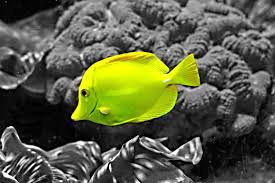记忆方法
将“emphasis”分解为“em”和“phas”来记忆。想象你用“em”强烈的情感,来“phas”出重点或强调,从而形成“emphasis”强调的意思。这种方法通过将单词分解为更易于记忆的部分,帮助建立词汇的关联记忆。
以上内容由AI生成, 仅供参考和借鉴
英语词源
- emphasis
-
emphasis: [16] In Greek, émphasis originally meant simply ‘appearance’. It was a derivative of emphaínein ‘exhibit, indicate’, a compound verb formed from the prefix en- ‘in’ and phaínein ‘show’ (source of English phase). It came to be used as a grammatical term denoting ‘implication’ (as opposed to ‘directly expressed meaning’) and passed in this sense via Latin emphasis into English. Its main modern use, ‘special importance placed on something’, derives from the stressing of a particular word or phrase in speech to show that it is intended to imply something other than its literal meaning might seem to suggest.
=> phase - emphasis (n.)
- 1570s, "intensity of expression," from Latin emphasis, from Greek emphasis "an appearing in, outward appearance;" in rhetoric, "significance, indirect meaning," from emphainein "to present, exhibit, display, let (a thing) be seen; be reflected (in a mirror), become visible," from assimilated form of en "in" (see en- (2)) + phainein "to show" (see phantasm). In Greek and Latin, originally a figure of expression implying more than would ordinarily be meant by the words, it developed a sense of "extra stress" given to a word or phrase in speech as a clue that it implies something more than literal meaning. In pure Latin, significatio.
权威例句
- 1. The emphasis is on developing fitness through exercises and training.
- 重点在于通过锻炼促进健康。
- 2. His voice was angry and he spaced the words for emphasis.
- 他的声音里透着愤怒,为了强调,他一字一顿。
- 3. "I might have known it!" Miss Burnett said with emphasis.
- “我早该料到了!”伯内特小姐加重语气说。
- 4. Other projects came up and the emphasis of my work altered.
- 突然来了一些其他的项目,我的工作重点便转移了。
- 5. Why the new emphasis on sticks instead of diplomatic carrots?
- 为什么最新政策强调采取强硬手段,而不是采用外交上的怀柔策略?
